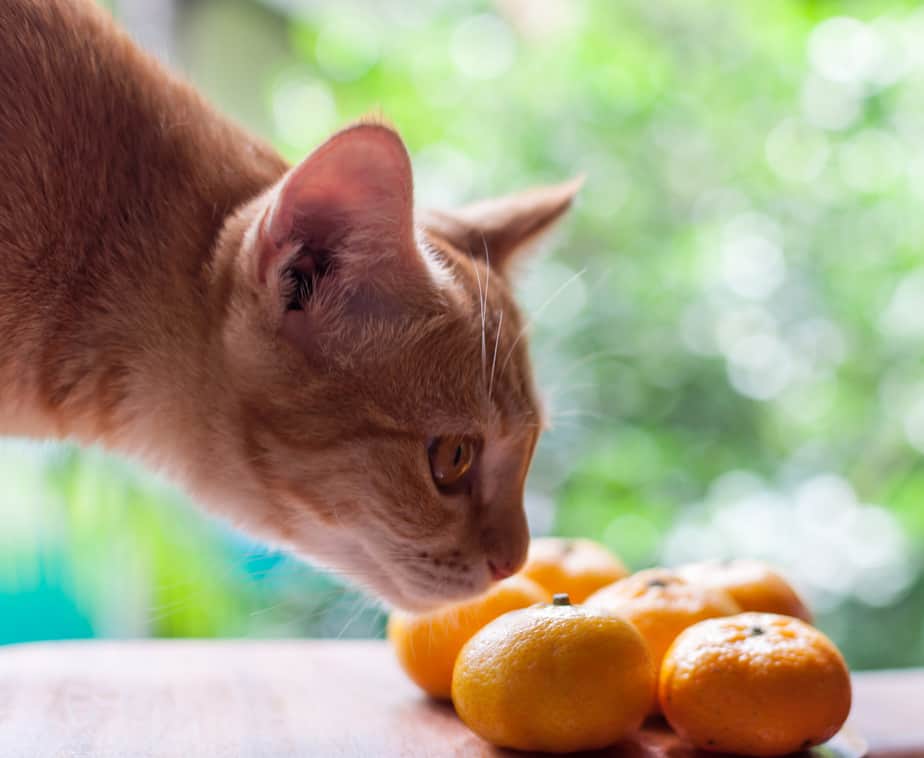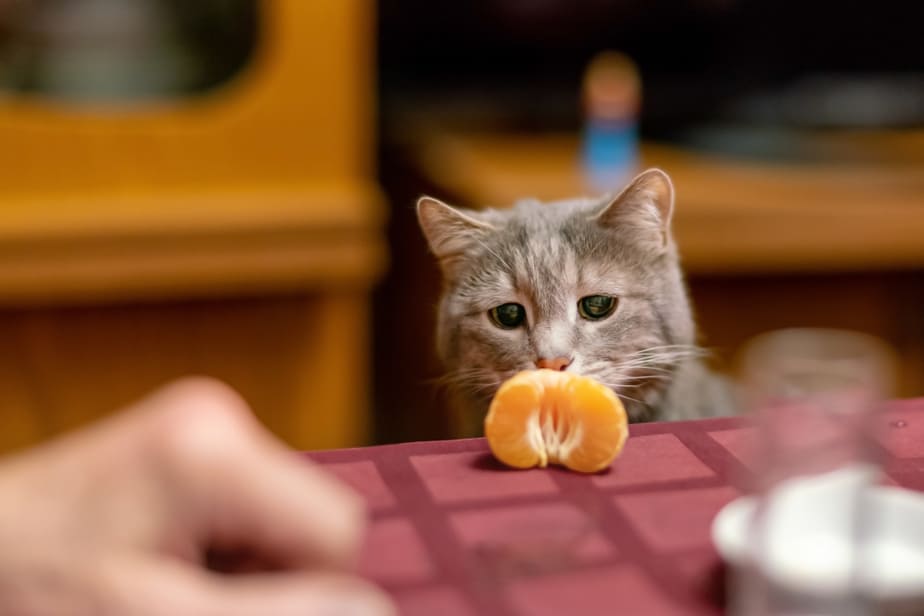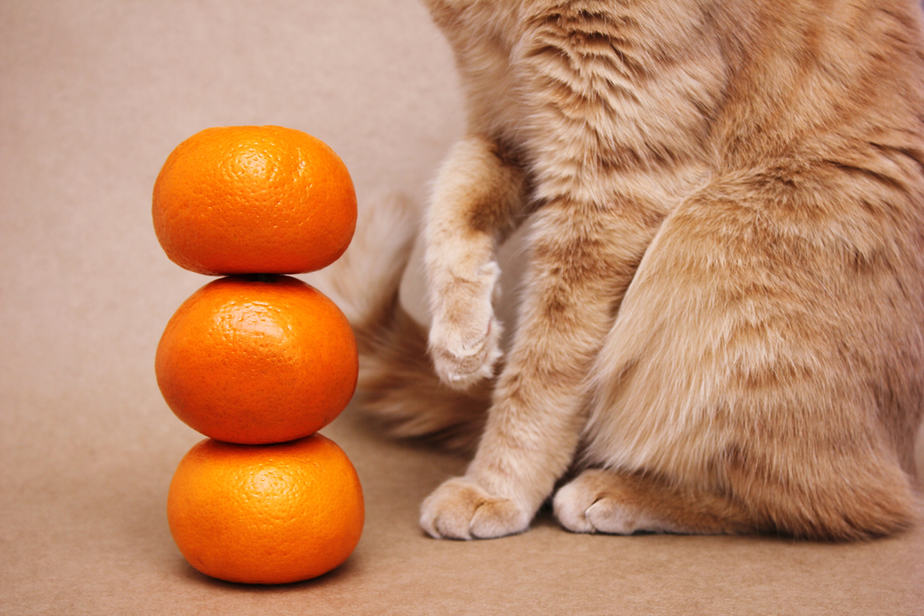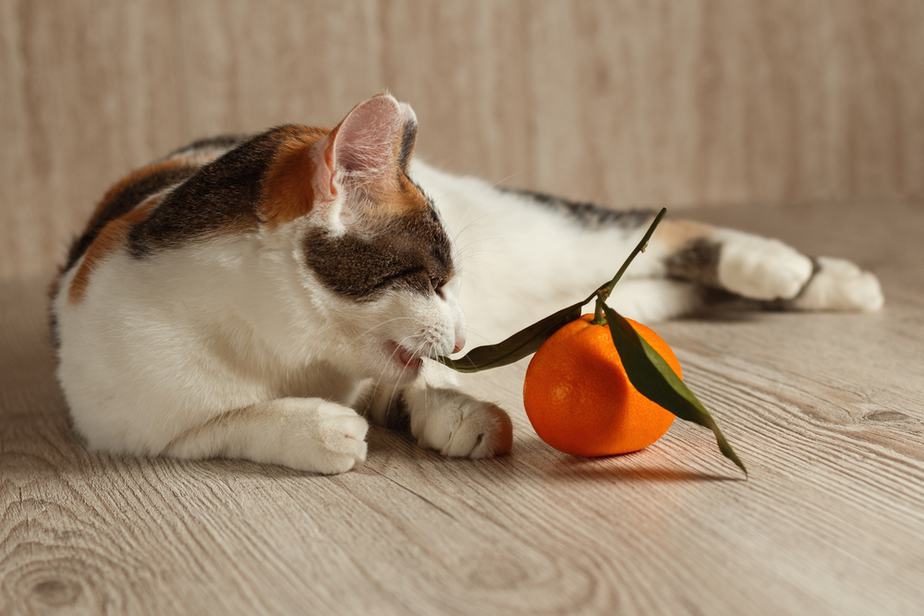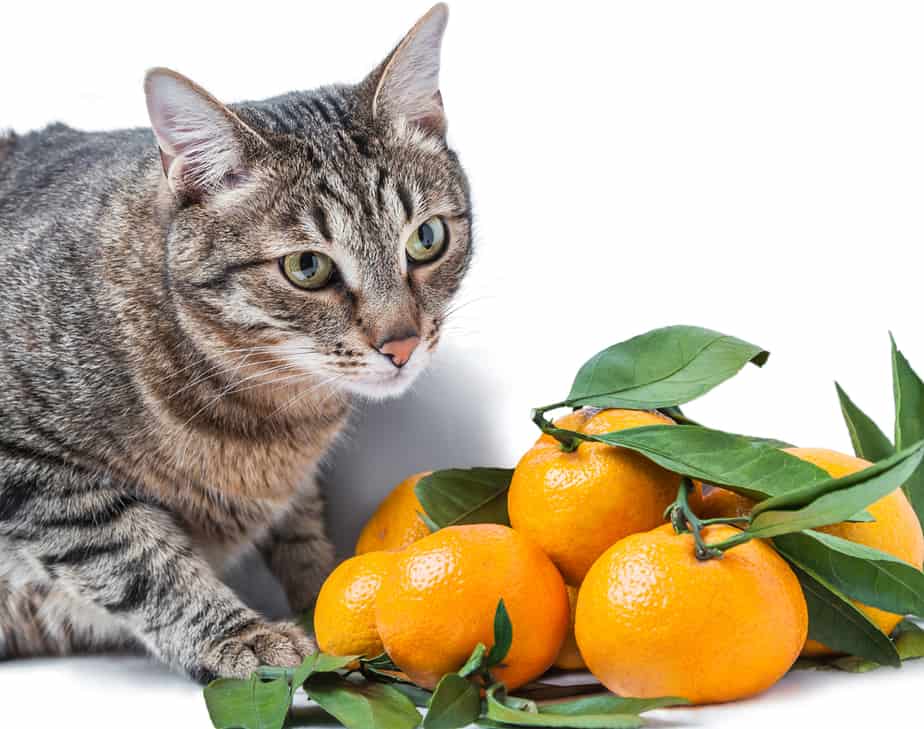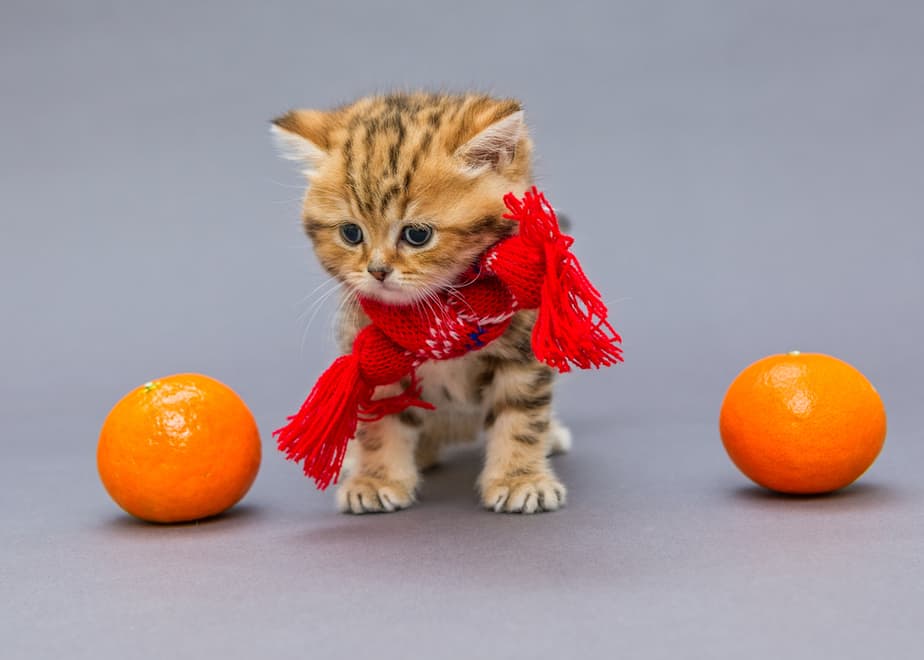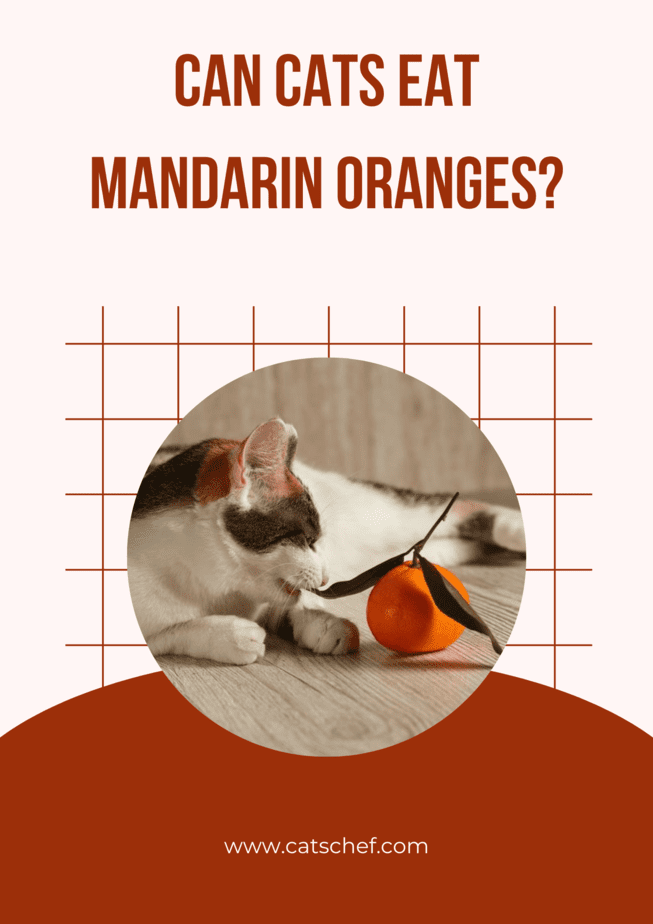📖 Table of Content:
Citrus fruits are appealing to humans and loved by many. We’re not so sure if the same can be said about our pets. Do they even like it and can cats eat mandarin oranges, for example?
We know fruits are highly nutritional to humans, but maybe some can be incorporated into our cats’ diets as well.
They are sometimes sweet, and other times, sour. Not sure if we’re talking about cats or mandarin oranges, right? To be fair, it describes both the fruits and our furry companions. But back to the citrus, mandarin oranges can be a bit too much for some people – and it could make your cat wrinkle up her nose too.
Can cats eat mandarin oranges safely?
To humans, they’re highly nutritional, but unfortunately, mandarin oranges can be poisonous to felines. While nothing stops you from peeling some and having a healthy snack, you should keep it away from your furkid. All citrus foods including lemon, lime, grapefruits, and others are toxic to cats.
This may be sad news because you thought of sharing some orange juice with your pet. Don’t worry though, the benefits found in these fruits aren’t necessary to your furry bestie.
Health benefits of mandarin oranges
Even since we were kids, we were told to eat lots of healthy foods like fruit to grow up big and strong. So, what is it that makes mandarin oranges so beneficial? When looking at vitamins, the one that stands out from the group is vitamin C.
1. Abundant in vitamin C
This health supplement is important for many body functions and boosting the overall immune system. It helps with the absorption of iron and the production of collagen. This improves bone and dental health.
It’s also a great source of antioxidants that help fight the free radicals in your feline’s body. However, even with all these health benefits, cats don’t really need this vitamin. The thing is, your superpet synthesizes this vitamin on her own.
Felines’ liver produces enough vitamin C to maintain good health and extra intake of it from mandarin oranges isn’t required. When it comes to humans, unlike our furry friends, we solely rely on the intake of this vitamin through various foods.
We usually resort to some vitamin C supplements when battling a cold or regular flu. It helps prevent further complications. But, don’t give these as medications to your fluff. If she’s suffering from a stuffy nose or any other signs of flu, make sure to contact her vet.
2. Beta-carotene kick
Even wonder why mandarin oranges are so vibrant in color? Thanks to beta-carotene, these colorful fruits are beautifully orange. This compound also serves as an antioxidant that helps prevent certain diseases.
However, if you’re wondering whether or not cats can eat mandarin oranges because of these benefits, they better not. If you’re looking for a rich source of beta-carotene that’s safe for felines, rather opt for some carrots.
Can cats get poisoned from eating mandarin oranges?
You are probably hoping for a totally opposite answer to this question, but we have to disappoint you. Yes, cats can get poisoned eating mandarins because of their acids. It’s not just mandarins though.
We know this is something you didn’t want to hear, but all citrus fruits are toxic to your fur child. So, if you see her so intrigued mandarins, she starts playing with some or taking a nibble, make sure to stay close and monitor her.
It’s unlikely your cat will die from eating a mandarin, but why risk it? The compounds that make mandarin oranges toxic for felines are essential oils like limonene and linalool, as well as psoralen. These are organic, naturally occurring compounds that could wreak havoc if eaten by cats!
If you come home to half-eaten mandarin orange, make sure to look for any signs of toxicity. These include vomiting, diarrhea, abdominal pain, as well as drooling. So, if you see your cat drooling next to a torn-apart mandarin, it’s not because she finds it mouth-watering.
We know finding out this sad news can be distressing. So, we recommend you empty out any orange mandarins from your bowl on the table. Still, this doesn’t mean you should stop consuming them – they still hold certain benefits to humans.
Other drawbacks of cats eating mandarin oranges
Besides the toxic compounds found in these fruits, they also have high levels of sugar. Fruits are known to be rich in this compound and that’s why we love them. However, your cat doesn’t need high amounts of carbs because they’re an unnecessary part of her diet.
Sugar consumption, even the healthy ones such as those found in fruits, can harm your pet. Especially if she’s exposed to it in the long run. Cats simply can’t digest it properly.
This leads to a build-up of carbohydrates, which eventually results in fat storage. A few extra pounds may look cute to us, but we’re sure your chonky will disagree with you.
If she doesn’t go on a diet, the added weight could cause pressure on her joints. In her old days, she may develop arthritis because of those extra pounds. Other than that, high cholesterol levels put her at risk of heart disease and stroke.
What about peels, stems, and leaves?
“Can cats eat mandarin oranges? Actually, can they eat different parts of this fruit such as its peels or leaves?”
Fruit is often an on-the-go snack. In the case of mandarins, this can result in scattered, unmonitored peels – a perfect opportunity for cats to investigate these colorful fruits.
If your cat’s a curious one and decides to go for some of the mandarin orange peels, make sure to stop her in her tracks. Peels are the most dangerous part of this fruit. They have the highest levels of toxicity because of large amounts of limonene and linalool.
While these organic compounds give the sweet scent of mandarin oranges, cats can’t smell anything other than pure repulsion. Felines’ senses are way better than humans and it’s unlikely they will show interest in eating mandarin peels.
When it comes to leaves and stems, it is no different from peels. Psoralen, a compound found in all parts of mandarin oranges, has photocarcinogenic properties. This means that this substance, if ingested in high doses by cats who spend a lot of time in the sunlight, can cause sunburn and more severe health problems.
So, it’s better to stay sane and not risk it. Throw the peels and leaves in the trash can and you’re free of any worries!
A natural cat repellent
Many cats are naughty creatures with a reputation for being obstinate. If your pet is on a rampage, especially when it comes to your flowers, we all know how it’ll end. Cats can wreak havoc on a person’s garden by destroying plants or using it as their personal loo.
As a result, people have tried a variety of tactics to keep cats out of their gardens. People have reported less damaging activities after using mandarin oranges or other citrus fruits.
The spray made of citrus fruits such as mandarins can be sprinkled on your house plants or around the garden to get the job done. The unpleasant scent will most likely dissuade them from misbehaving in the future.
The fact that even the scent of mandarin oranges is deterring to felines should be an indicator that cats won’t and can’t eat them. They are smart little creatures, after all.
After a couple of sneezes, their interest will likely wane. If this tactic doesn’t work, try some black pepper. Its scent isn’t appealing either, so it may just do the trick.
Fruity alternatives to mandarin oranges
We’ve established that it’s unsafe for cats to eat mandarin oranges. This fruit can do more harm than good. As a safe alternative, try offering your pet some kiwi, for example. It’s abundant in minerals and vitamins, which makes it a great addition to their diet.
Apples, watermelon, strawberries, peaches and cranberries are all allowed for your pet to much on. You can even make a smoothie for your furkid, adding some bananas to it. The only thing to remember is that fruits are high in sugar, which is unnecessary for cats, so make sure you treat them in moderation.
These can come as a great refreshment for your pet, especially on hot summer days. You can even go DIY and make some frozen fruity snacks!
All in all
To conclude whether cats can eat mandarin oranges, we have provided you with some crucial information. Sadly, citrus foods are considered toxic to cats and certainly not a great option when it comes to enriching your pet’s diet.
These have a greater purpose in being a natural cat deterrent because of their strong, acidic smell. All parts of mandarin oranges are harmful to felines, including peels, stems, and leaves. In short, make sure she doesn’t get a hold of it.
If you’re living in areas where you grow lemon and other citrus fruits, make sure to monitor your spider-cat! Her climbing skills may get her into trouble this time.
Citrus poisoning rarely occurs, but it can really damage your cat’s health if it does. Keep your cat far away from any orange juices, smoothies, fruit salads, and others.
